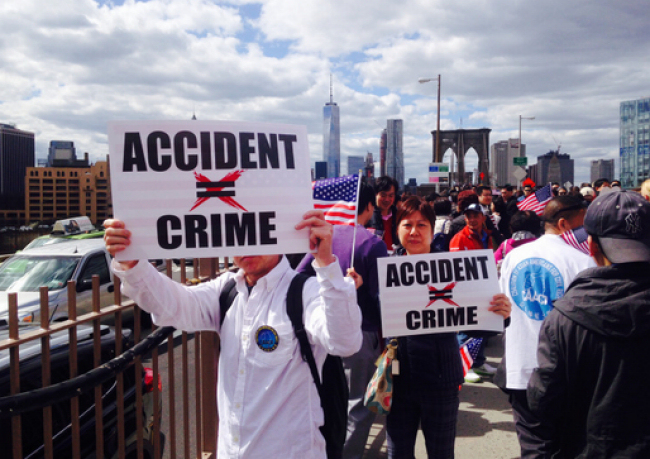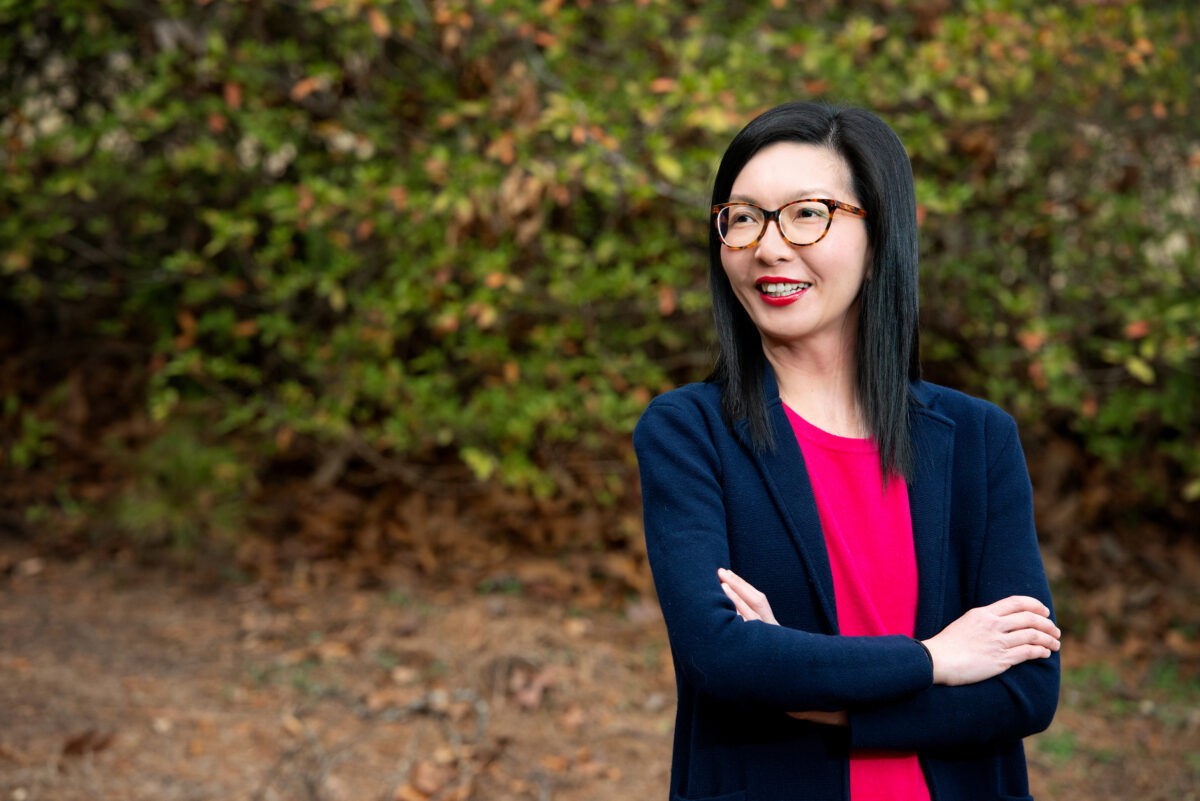
After over a month of build-up, a “National Day of Protest” that organizers said would involve coordinated rallies opposing the indictment of NYPD rookie police officer Peter Liang occurred last Sunday. Officer Liang was indicted earlier this year by a grand jury on manslaughter and reckless endangerment charges after he fatally shot unarmed civilian Akai Gurley in a darkened stairwell during an unsanctioned vertical patrol late last year.
Last month, thousands of Chinese Americans took to the streets to oppose Liang’s indictment, claiming that the criminal charges against Liang were unfair, and a form of “racial scapegoating”. However, many other Asian Americans (including myself) support Officer Liang’s indictment as a necessary outcome if we are to expect greater police accountability and an end to racial profiling and police brutality. Last week, the Committee Against Anti-Asian Violence (CAAAV) organized an open letter of support for Officer Liang’s indictment and solidarity with the #BlackLivesMatter movement; over 50 AAPI organizations (including this blog) and more than 200 AAPI individuals — including several community leaders — signed on.
Over the weekend, anti-indictment protesters were scheduled to rally in cities ranging from New York to Los Angeles. In the wake of the growing coverage of incidents of police brutality — including the recent shooting death of unarmed civilian Walter Scott which resulted in criminal charges for the police officer in charge — I was curious to see what impact these recent events might have on Liang’s supporters, whose rhetoric appeared to hinge largely on the assertion that police officers should have the unmitigated right to shoot unarmed Black men and women without consequence.
Marchers on the Brooklyn Bridge, condemning the indictment of Officer Peter Liang in a fatal shooting last year. pic.twitter.com/Q1FJnoTdSd
— NYT Metro (@NYTMetro) April 27, 2015
Originally, organizers claimed that over 6000 protesters were expected to attend Sunday’s series of national protests, with over 3000 anticipated to take to the streets in New York City alone.
However, when the time came this past Sunday, local news outlet Pix11 reported that “hundreds” (but not thousands) of protesters met at Cadman Plaza Park in Brooklyn at 2pm on Sunday, and marched across the Brooklyn Bridge to Manhattan’s Chinatown area (pictured above). A Facebook event set up for the protest listed a mere 6 attendees, although protesters were likely using other Chinese-language social media platforms to organize the rally. Protesters mingled with pedestrians and tourists on the Brooklyn Bridge, holding American flags and signs that read “Accident =/= Crime” and “Justice for Peter Liang”. While photographs are not clear in assessing the size of the rally, turnout for this event appears to be far lower than the originally anticipated 3000.
In California a planned protest in Los Angeles was waylaid after organizers were unable to obtain a permit for the protest, originally scheduled for Saturday. Rally organizer, Ray Chen, who is part of the Board of Directors for HQH Chinese American Equalization Association, told a group of journalists last Thursday that the protest permit was cancelled by the LAPD on Tuesday, 24 hours after it was originally granted. Chen claimed that the permit denial was a violation of Asian Americans’ First Amendment rights.
“What the LAPD did is a direct violation of the Constitution,” Chen said. “They’ve violated our rights, more specifically they’ve violated our rights to free speech and peacefully assemble.”
Chen and Hui called on Asian Americans to stand up for their rights.
“An Asian-American organization has been bullied,” Chen added. “What do we need to do to be taken seriously? We are not second-class citizens.”
Police officials contacted by Pasadena Star News said the permit for the rally was withdrawn because it conflicted with a pre-existing street festival, Fiesta Broadway, which drew crowds of nearly 10,000 people (and which was originally expected to attract more than 30,000 attendees) to downtown Los Angeles that day.
The ACLU says that police and government officials are allowed to place “nondiscriminatory and narrowly drawn ‘time, place and manner’ restrictions on the exercise of First Amendment rights”, which includes requiring a permit for any march that uses public gathering spaces. The ACLU further notes that denial of a permit would not have prevented the aforementioned rally from taking place so long as protesters could stay on sidewalks, obey traffic signals, and allow for other normal pedestrian traffic. While I’m sympathetic with organizers frustrated with the last minute cancellation of their event permit, it does not actually appear as if the First Amendment Rights of this group were violated.
Last month, supporters of Officer Liang also said that rallies were planned to take place this weekend in many other cities around the country. However, as of this morning, there exists no coverage of any such events taking place in mainstream news.
Read More: V. Gunawan has Storified the controversy here.

